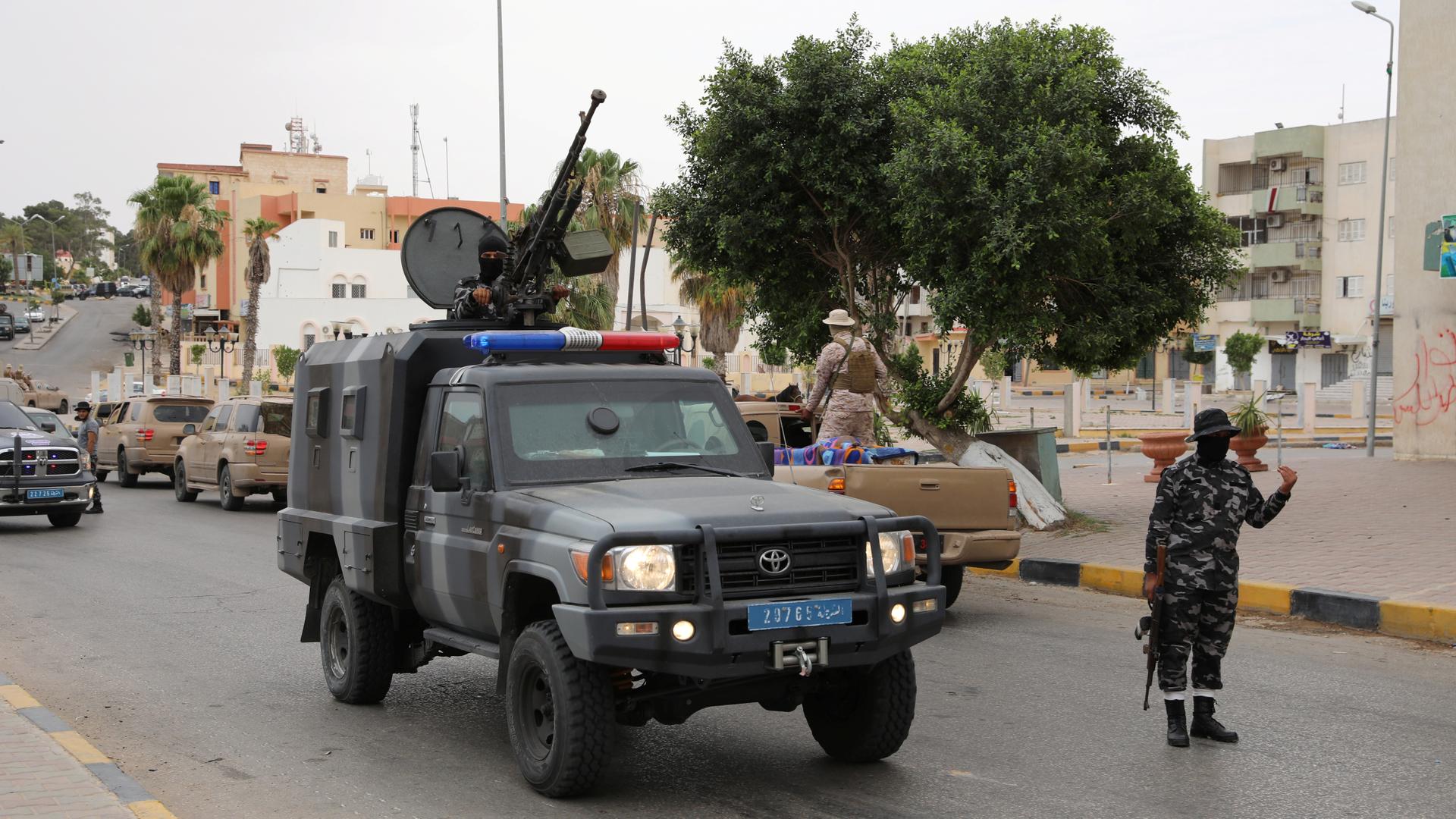Warring sides in Libya are mobilising near the country’s main oil region amid calls for a de-escalation as a war of words brews between Nato allies Turkey and France which both back rival sides in the Libyan conflict.
Libya’s frontlines have shifted rapidly as Ankara’s backing helped the internationally recognised Government of National Accord (GNA) to drive warlord Khalifa Haftar’s eastern-based militias from Tripoli and the northwest.
Haftar’s so-called Libyan National Army (LNA), backed by the United Arab Emirates, Russia and Egypt, has fallen back as far as Sirte, on the central Mediterranean coastline, where air strikes slowed down the GNA advance.
Both sides are now preparing to battle for Sirte even as world powers call for the warring sides to announce an immediate ceasefire.
Turkey accuses France of being complicit in Haftar’s chaos
Turkey on Tuesday slammed French President Emmanuel Macron for his comments on Ankara’s support for the internationally recognised Libyan government.
Macron’s calling Turkish support for the internationally recognised government of Libya a “dangerous game” could only be explained as an “abdication of reason”, Foreign Ministry spokesman Hami Aksoy said in a statement.
By ignoring Turkey’s legitimate rights in the Eastern Mediterranean and supporting “maximalist” ambitions, France only heightens the tension in the region instead of promoting peace and stability, he added.
Accusing Paris of being complicit in the chaos in Libya, Aksoy said it was not Turkey, but France that was playing a “dangerous game.”
He urged France and Macron to stop risking the security and future of Libya, Syria and the Eastern Mediterranean and instead use existing channels of dialogue.
After a meeting with Tunisian President Kais Saied in Paris, Macron late on Monday criticised Ankara for its support for the Libyan government against renegade general Khalifa Haftar, backed by France, Egypt, the United Arab Emirates (UAE) and Russia.
READ MORE: France’s underhand tactics have made things in Libya worse
Libyan and foreign forces mobilise at Sirte
Arab foreign ministers said, also on Tuesday, they wanted to head off a new battle in Libya, where the warring sides are mobilising near Sirte, the main oil region.
“Libya is passing through a dangerous turn in the course of its conflict,” Arab League Secretary-General Ahmed Aboul Gheit said in a statement.
Denying a United Nations report that said Moscow had up to 1,200 mercenaries in Libya, Russia said a ceasefire was the only option.
The decision on a peaceful settlement must be made by the Libyans themselves, while the role of the external players is to provide the conditions for peace talks, Russian Foreign Minister Sergey Lavrov said on Tuesday.
Lavrov added that during the entire course of the conflict, the initiative and military superiority passed from one opposing side to the other several times and it resembles a swing.
“So I see no option but an immediate ceasefire. And the resolution of all other issues on the basis of a negotiation process in line with the understandings set out in the declaration of the Berlin conference,” the minister said.
Major blow to Haftar
The LNA militias retreat to Sirte last month was a blow to Haftar, whose goal of uniting Libya by force after years of chaos and division hinged on the offensive he launched in April 2019 to capture Tripoli.
Any further advance by the GNA would give it the chance to take back control over Libya’s “oil crescent,” the region where most of the OPEC member’s energy is produced and exported.
Its military success in recent weeks has depended partly on the support of Turkish drones, which targeted Haftar’s militias supply lines and troop formations.
Last month the United States said Russia had flown warplanes to a Haftar militia-controlled base and last week it said they were now operating in the vicinity of Sirte.
READ MORE: Analysis: France’s never-ending battle with Islam
Since last year, several high-level meetings, known as the Berlin peace process, were held in the German capital to put an end to the conflict in Libya, with the participation of world powers and regional actors.
The EU had deemed this UN-backed negotiation process the only acceptable way forward as it was based on peaceful and multilateral talks.
Libya has been torn by civil war since the ouster of late ruler Muammar Gaddafi in 2011. The country’s new government was founded in 2015 under a UN-led agreement, but efforts for a long-term political settlement failed due to a military offensive by Haftar’s militias.
The UN recognises the Libyan government headed by Fayez al Sarraj as the country’s legitimate authority as Tripoli battles Haftar’s militias.
The government launched Operation Peace Storm against Haftar in March to counter Haftar’s attacks on the capital Tripoli, and recently liberated strategic locations, including Tarhuna, Haftar’s final stronghold in western Libya.
READ MORE: Italy, Germany, US seek Libya ceasefire after Egypt threat










Discussion about this post